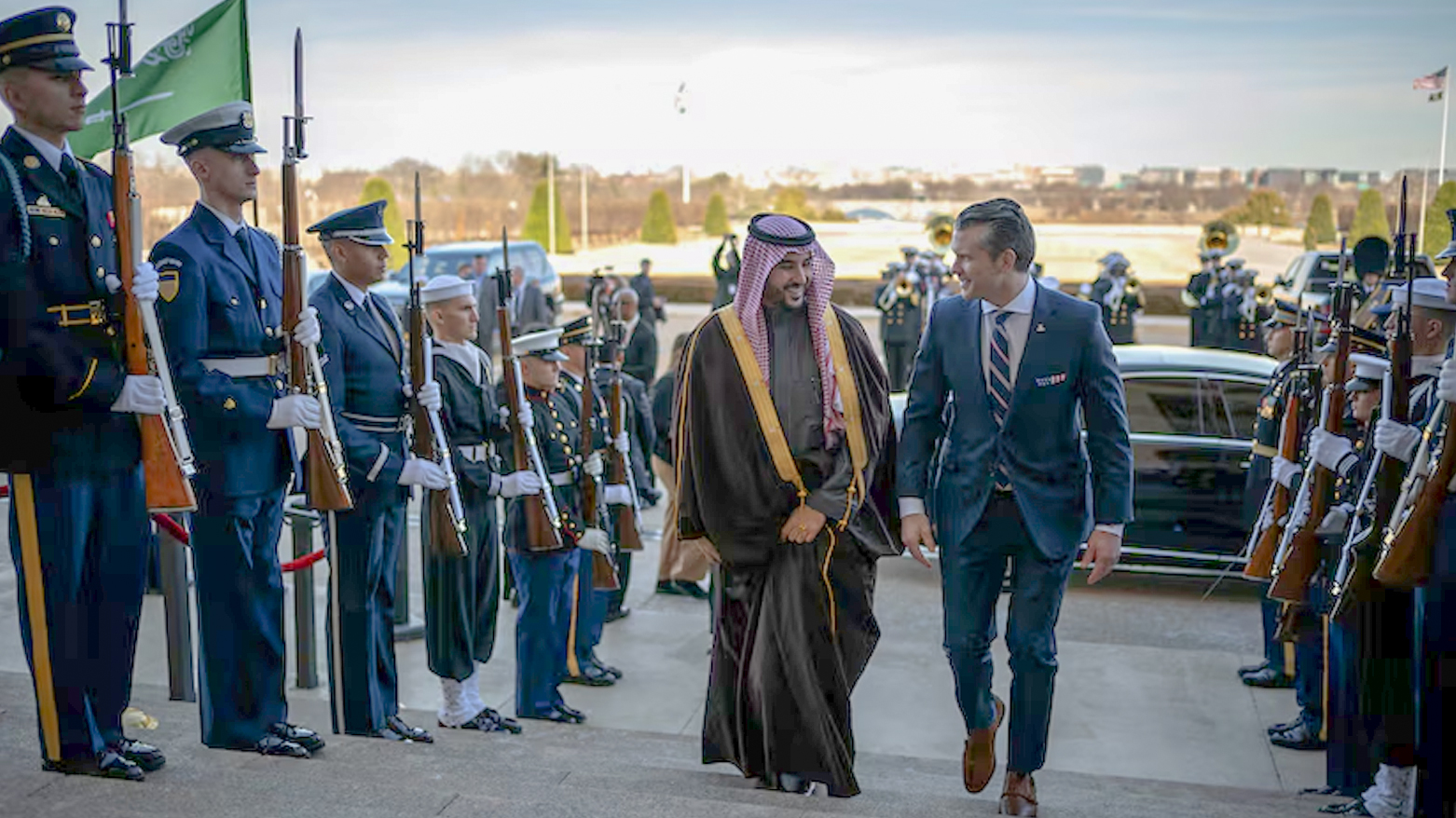Trump Administration Imposes Third Round of Sanctions on Iran, as Saudi Defense Minister Visits Washington
The tough line against Iran marks a significant change from Biden, while Trump is also drawing much closer to Saudi Arabia.

WASHINGTON DC, United States (Kurdistan24) - The U.S. announced on Wednesday that it was imposing yet one more round of sanctions related to Iran—the third such measure it has taken since President Donald Trump’s second term began a month ago.
Read More: US Imposes New Sanctions on Iran Oil Sales, as KRG Oil Exports Slated to Resume
That tough line against Iran marks a significant change from the Biden administration. At the same time, the Trump administration is drawing much closer to Saudi Arabia, which is also a significant change from Joe Biden’s policy toward the Middle East.
Read More: US Officials Meet Saudi Leaders Ahead of Talks with Russia
Read More: Trump Walks Back Controversial Gaza Remarks in Apparent Coordination with Saudi Arabia
Saudi Arabia’s Defense Minister visited Washington this week and met with Defense Secretary Pete Hegseth and Secretary of State Marco Rubio, further consolidating ties between Washington and Riyadh.
New Iran Sanctions
The new U.S. sanctions target Iran’s ballistic missile program and its UAV (Unmanned Aerial Vehicle) program.
In announcing the sanctions, the State Department affirmed its intent to “use all available means to expose and disrupt Iran’s growing UAV and missile development” programs, as well as their proliferation, “which destabilizes the Middle East and beyond.”
“We will continue to act against the complex schemes Iran employs to conceal its acquisition of sensitive technology,” which helps to produce “missiles and drones that Iran uses against our allies and exports to its terror proxy groups and Russia,” it added.
Indeed, Iranian proxies in Iraq have long used such weapons to attack U.S. troops. And since Oct.7, 2023, they have joined with other Iranian-backed groups, including the Houthis in Yemen and Hizbollah in Lebanon, to attack other targets, most notably Israel, in a widening war, apparently orchestrated by Tehran.
In addition, Iran has attacked the Kurdistan Region directly, most seriously last January, when it launched a ballistic missile assault, killing the prominent Kurdish businessman, Peshraw Dizayee, and his young daughter.
Read More: KDP President Masoud Barzani attends burial ceremony of businessman killed in missile attack
Wednesday’s sanctions target six businesses which are based in Hong Kong and the People’s Republic of China (PRC), as the Treasury Department detailed.
Saudi Defense Minister
Given the long-standing hostility between Saudi Arabia and Iran, a strong stance against Iran is consistent with the development of close relations with Riyadh. In fact, the two really go together, complementing one another.
The first visit to Washington of a senior Middle East official was that of Israeli Prime Minister, Benjamin Netanyahu earlier this month. In fact, Netanyahu’s visit was the first of any world leader.
Thus, the visit of the Saudi Defense Minister, Khalid bin Salman, this week marks the second visit of a senior Middle East official to Washington in Trump’s second term.
On Tuesday, bin Salman first saw Secretary of Defense, Pete Hegseth. Before their meeting began, Hegseth greeted bin Salman, saying, “Our partnership with Saudi Arabia matters a great deal. President Trump demonstrated this when he made his first overseas phone call to Saudi Crown Prince Mohammed bin Salman on January 23rd”—just three days after taking office.
Later on Tuesday, bin Salman met with Secretary of State Marco Rubio. They “underscored the importance of strengthening the U.S.-Saudi security partnership,” according to a read-out of their meeting from State Department Spokesperson Tammy Bruce.
“They also discussed ways to jointly promote peace and stability in Syria, Lebanon, Gaza, and across the region, to include Red Sea security and freedom of navigation,” she added, noting that Rubio had “highlighted the need to stand together against Houthi threats to regional security.”